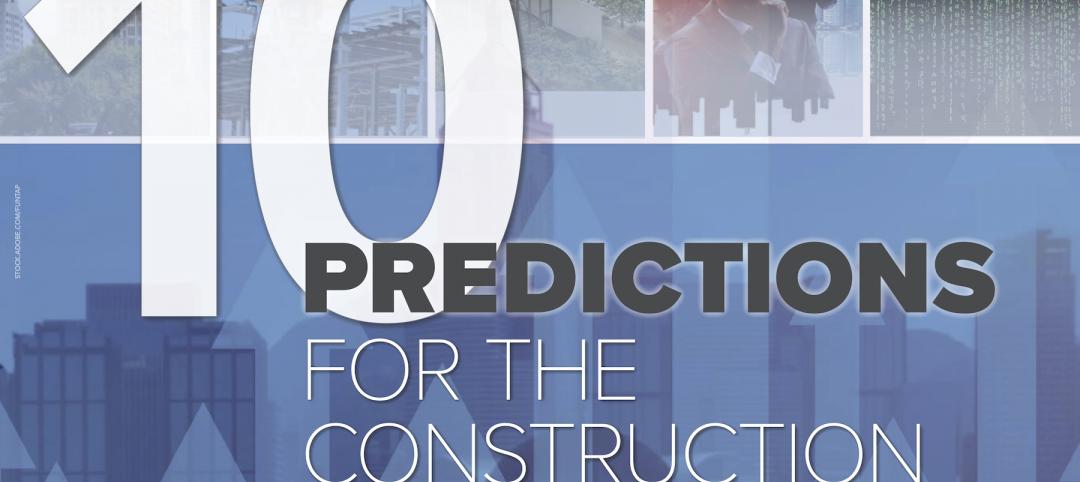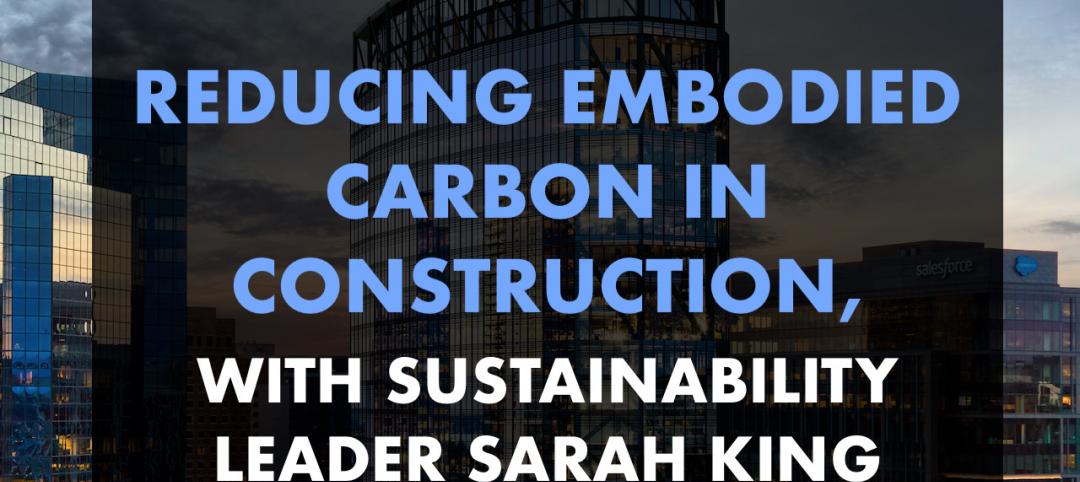A record-high number of candidates—37,178 at the end of 2014—were actively working toward an architect license required by the 54 state and jurisdiction licensing boards across the country.
It is common for candidates to be described, in the press or by many jurisdictions, as “intern-architects” or “architects in training,” or by some other nomenclature that might confer a false level of expertise or legal status.
The National Council of Architectural Regulation Boards (NCARB) wants to change that. Following the recommendations of a Future Title Task Force it formed last year, NCARB is embarking on an initiative that would “sunset” the term “intern” for those who are on a training or testing path to become architects.
NCARB is taking steps to erase “intern” from its internal lexicon, according to CEO Michael Armstrong. It plans to remove the word from its communications and correspondences. As an example, someone registered for the Architect Registration Examination “is an ARE candidate,” he said.
NCARB officials made this announcement during the American Institute of Architects’ (AIA) Convention 2015 Expo in Atlanta last week.
This debate isn’t new. “This issue has been fraught with controversy,” said Dale McKinney, FAIA, NCARB’s President. “We know that in the last several years, concerns have been raised regarding the credibility of the term ‘intern.’”
That’s not surprising, given the sheer number of architect candidates out there. In its “NCARB By The Numbers” report, which it will formally release in July, the Council estimates that nearly 10,000 new candidates had started on the path to licensure in 2014, 4% more than the previous year. The number of candidates who had completed the Architect Registration Exam was up 17% to 3,719.
The Task Force, chaired by McKinney’s immediate predecessor, Blake Dunn, considered several factors, particularly the regulatory impacts of extending the title “architect” beyond the licensed community. The Task Force recommended that:
• The role of regulation should be restricted to the title “architect,” which should be applied only to licensed individuals;
• Any other title held by those pursuing a license does not need to be regulated.
• NCARB should discontinue the use of the work intern, intern-architect, “or any other regulatory ‘title’ described those pursing licensure.”
(In April, NCARB’s board of directors voted unanimously to accept the Task Force report, which also determined that the term “architect emeritus” is acceptable because those people described as such, while they may not be practicing, still have obtained their license.)
NCARB is taking steps to erase “intern” from its internal lexicon, according to CEO Michael Armstrong. It plans to remove the word from its communications and correspondences. As an example, someone registered for the Architect Registration Examination “is an ARE candidate,” he said. “A person recording experience hours is a Record holder.” The Council is renaming its Internship + Education Directorate with the new title Experience + Education Department, or E2. And it is likely that its Intern Development Program—which the Council recently streamlined and overhauled—will be renamed.
Dennis Ward, AIA, who becomes the Council’s president on June 21, pointed out that 30 jurisdictions or licensing boards currently reference one or more titles that include the word intern or “architect in training.”
With its announcements, NCARB, said Armstrong, is asserting “our role as an advisory organization. We’re putting down a leadership marker.” But he and McKinney were quick to note that proposals to change the Council’s Model Law or regulations would need to be presented by delegates of the state licensing boards. The earliest such proposals could be presented for comment would be next Spring, and for a vote of the Membership at the Council’s Annual Business Meeting scheduled for Seattle in June 2016.
During its press conference at the AIA Expo, NCARB stated that U.S. licensing boards reported 107,581 licensed architects at the end of 2014, representing the third consecutive year of increased growth in the profession.
Related Stories
Architects | Nov 9, 2021
Download BD+C’s 2021 Design Innovation Report
AEC and development firms share where new ideas come from, and what makes them click.
Architects | Nov 9, 2021
Download BD+C’s 10 Predictions for the Construction Industry in 2022
Our prognostications focus on how AEC firms will streamline and modernize their projects and operations.
Architects | Nov 9, 2021
Pelli Clarke Pelli Architects announces renaming
Founded by Cesar Pelli with partners Fred Clarke and Diana Balmori in 1977, the firm began its legacy as Cesar Pelli & Associates at its first office in New Haven, Connecticut.
Movers+Shapers | Nov 7, 2021
Passage of $1.2 trillion infrastructure bill expected to spur stronger construction activity
AEC firms see federal investment as historic
Architects | Nov 2, 2021
What rugby can teach us about designing the workspace of the future
Two veteran workplace designers offer a sports-based analogy for designing agile spaces to meet the needs of an evolving workforce.
Adaptive Reuse | Nov 1, 2021
CallisonRTKL explores converting decommissioned cruise ships for housing
The rapid increase in cruise ship decommissioning during the last 18 months has created a unique opportunity to innovate and adapt these large ships.
Sustainability | Oct 28, 2021
Reducing embodied carbon in construction, with sustainability leader Sarah King
Sustainability leader Sarah King explains how developers and contractors can use the new EC3 software tool to reduce embodied carbon in their buildings.
Cladding and Facade Systems | Oct 26, 2021
14 projects recognized by DOE for high-performance building envelope design
The inaugural class of DOE’s Better Buildings Building Envelope Campaign includes a medical office building that uses hybrid vacuum-insulated glass and a net-zero concrete-and-timber community center.
AEC Tech | Oct 25, 2021
Token Future: Will NFTs revolutionize the design industry?
How could non-fungible tokens (NFTs) change the way we value design? Woods Bagot architect Jet Geaghan weighs risk vs. reward in six compelling outcomes.
Giants 400 | Oct 22, 2021
2021 Retail Giants: Top architecture, engineering, and construction firms in the U.S. retail building sector
Gensler, CallisonRTKL, Kimley-Horn, and Whiting-Turner top BD+C's rankings of the nation's largest retail sector architecture, engineering, and construction firms, as reported in the 2021 Giants 400 Report.

















